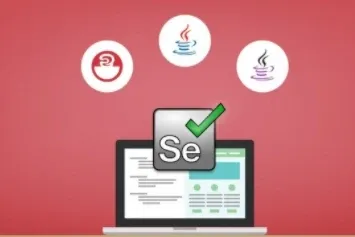



 Tech & IT
Tech & IT
 Business
Business
 Coding & Developer
Coding & Developer
 Finance & Accounting
Finance & Accounting
 Academics
Academics
 Office Applications
Office Applications
 Art & Design
Art & Design
 Marketing
Marketing
 Health & Wellness
Health & Wellness
 Sounds & Music
Sounds & Music
 Lifestyle
Lifestyle
 Photography
Photography
More Learnfly
Business Solution Become an InstructorUnit Testing involves evaluating individual components or units of code to ensure they function as intended. It helps identify and fix bugs early in the development process, contributing to software reliability and maintainability.

By : AKHIL VYDYULA
Master Unit Testing and Mocking with JUnit 5 and Mockito for Reliable Java Applicatio...
4.3 192
3:9:38 hrs 36 lectures All Level

By : Sushma Pinapati
Automated Test Framework...
4.1 63272
7:54:52 hrs 51 lectures All Level

By : Syam Mohan
Software testing, testing, performance testing, software engineering, software qualit...
4.7 94656
1:45:40 hrs 12 lectures Beginner Level












Learn more topics in various categories at one place. Explore unlimited courses in other categories and up-skill yourself today.

 Jazeb Akram
Jazeb Akram 4.2 771163 Beginner Level

 John Hedengren
John Hedengren 4.1 569070 All Level

 Ranjan Pandey
Ranjan Pandey 4.1 346736 All Level

 Muhammad Ahsan Pervaiz
Muhammad Ahsan Pervaiz 4.2 101344 All Level

 Pieter Vliegenthart
Pieter Vliegenthart 4.6 100923 All Level

 Jerome P.
Jerome P. 4.8 100892 All Level

 Senol Atac
Senol Atac 4.9 100114 All Level

 Vikas Munjal
Vikas Munjal 4.8 100071 Beginner Level

 Avinash A
Avinash A 4.8 100023 All Level

 AKHIL VYDYULA
AKHIL VYDYULA36 Lectures Beginner Level
.jpg)
 Andrii Kuchyrenko
Andrii Kuchyrenko55 Lectures Beginner Level

 Mohamed Soliman
Mohamed Soliman23 Lectures Beginner Level

 Chirag Singh
Chirag Singh9 Lectures Beginner Level

 Sushma Pinapati
Sushma Pinapati51 Lectures Beginner Level

 Nikolay Advolodkin
Nikolay Advolodkin71 Lectures Beginner Level

 Arun Motoori
Arun Motoori247 Lectures Beginner Level

 Arun Motoori
Arun Motoori23 Lectures Beginner Level

 Arun Motoori
Arun Motoori89 Lectures Beginner Level

 Arun Motoori
Arun Motoori142 Lectures Beginner Level

 Arun Motoori
Arun Motoori296 Lectures Beginner Level

 Automation Talks
Automation Talks32 Lectures Beginner Level

 Syam Mohan
Syam Mohan12 Lectures Beginner Level
Unit Testing is a software testing approach where individual units or components of a software application are tested in isolation. The goal is to ensure that each unit functions correctly as designed, helping to identify and fix bugs early in the development process.
Unit Testing is crucial for maintaining code quality and preventing regressions. It provides rapid feedback to developers, ensures the reliability of individual units, and facilitates easier debugging and maintenance. Successful unit tests contribute to a robust and stable software system.
A unit test typically follows a Arrange-Act-Assert (AAA) structure. The "Arrange" phase sets up the test environment, the "Act" phase invokes the unit under test, and the "Assert" phase verifies the expected outcome. This structure ensures clear organization and readability of tests.
Test-Driven Development is a software development approach where tests are written before the actual code. Developers first write a failing unit test, then write the minimal code necessary to make the test pass. TDD ensures that code is testable, modular, and meets the specified requirements.
Various testing frameworks support Unit Testing in different programming languages. Examples include JUnit and TestNG for Java, pytest for Python, NUnit for C#, and Mocha for JavaScript. These frameworks provide structures for organizing tests, assertions for verification, and other testing utilities.





